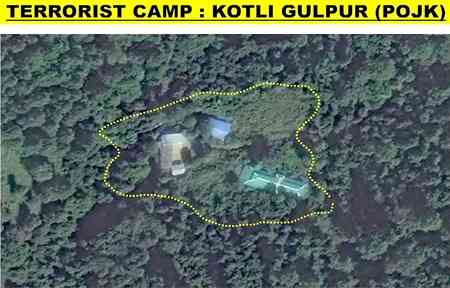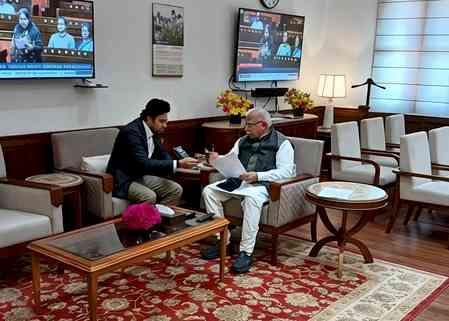FairPoint: India's Operation Sindoor forces Pakistan to own its terror proxies, world cannot stay silent
Operation Sindoor is a success as it has brought Pakistan to its knees and helped India starkly expose the neighbouring country's grooming of terror gangs and complicity in global terrorism.

Deepika Bhan
New Delhi, May 11 (IANS) Operation Sindoor is a success as it has brought Pakistan to its knees and helped India starkly expose the neighbouring country's grooming of terror gangs and complicity in global terrorism.
The operation was not just a tribute to the victims of terror or an act of vengeance for the deaths in Pahalgam - it is a symbol of the fight against terrorism that Pakistan has been unleashing not only in India but also across other countries.
The operation has revealed bitter truths about Pakistan - something that even the US operation to eliminate Osama Bin Laden could not fully expose, particularly the Pakistan Army's role in nurturing terrorist groups. These gangs have unleashed terror in India for decades, killing hundreds of innocent civilians and causing the ethnic cleansing of Hindus from Kashmir.
India has repeatedly informed the world about Pakistan's involvement in various terror attacks across the country. New Delhi has provided substantial evidence, the most significant being Ajmal Kasab, the terrorist captured alive during the Mumbai attacks on November 26, 2008, and proof of the Pulwama terror attack. India has also consistently warned the global community about Pakistan's designs in Kashmir - a sinister campaign it has pursued since 1947, and the latest incident is the Pahalgam massacre.
Unfortunately, the world has largely turned a blind eye. There have been statements, but no concrete action has been taken against what is essentially a terror factory. While the United Nations and several countries have designated individual Pakistani terrorists, they have stopped short of labelling the country itself. Operation Sindoor has provided irrefutable proof - evidence too strong to ignore.
The operation was launched on May 7 in response to the terror attack in Pahalgam, Jammu and Kashmir, on April 22, which killed 26 civilians. The attack was quickly claimed by The Resistance Front (TRF), an offshoot of the Pakistan-based Lashkar-e-Taiba (LeT), which emerged after the abrogation of Article 370 in J&K in August 2019.
The close ties between Pakistan and TRF became evident during discussions about the Pahalgam attack at the United Nations Security Council. Pakistan played a key role in removing the group's name from the UNSC's condemnation statement. If Pakistan had no connection to the attack, why the agitation over naming the group?
Under Operation Sindoor, Indian Armed Forces targeted terrorist infrastructure at nine specific locations in Pakistan and Pakistan-occupied Kashmir. All these sites were known terror bases, and several designated terrorists were neutralised.
Videos and photographs surfaced showing Abdur Rauf, a US-designated terrorist, leading prayers for those killed in the strike on the LeT's headquarters in Muridke. The funeral was attended by military officers in uniform. The terrorists were given "state honours" - draped in the Pakistani national flag, saluted by army officers, and one coffin even received a floral wreath from the Pakistan Army Chief.
In the initial phase of Operation Sindoor, five terrorists, assigned key roles in Jaish-e-Mohammed and LeT - were eliminated. They were identified as Mudassar Khadian Khas, Hafiz Muhammed Jameel, Mohammad Yusuf Azhar, Khalid alias Abu Akasha, and Mohammad Hassan Khan. Senior Pakistani military officers attended their funerals. The photos and videos have gone viral, further exposing the decades-old nexus between Pakistan's military and terrorist organisations.
In perhaps the most damning admission, Pakistan’s Defence Minister, Khawaja Asif, provided undeniable proof by admitting in a television interview that Pakistan had funded and supported terrorist groups for decades, especially during the US-led wars in Afghanistan. Asif described this involvement as "dirty work" done for the United States and the West, including the UK.
Going even further, Asif told Parliament that these terrorists constitute Pakistan's "second line of defence," and that “students of madrasas would be deployed when needed.”
It is also telling that the Director General of Inter-Services Public Relations (ISPR), Lieutenant General Ahmed Sharif Chaudhry - the man briefing the world on India-Pakistan tensions - is the son of a declared terrorist, Sultan Bashiruddin Mahmood, a known aide of Osama bin Laden.
Operation Sindoor has laid bare how Pakistan's political and military establishments are dangerously intertwined with jihadist and terrorist elements. It is time for the world to sit up and take notice.
The evidence is overwhelming - Pakistan is a rogue terror state that weaponises religion to further its agenda. India's operation has dismantled Pakistan's terror network in ways the Americans could not. It proves that India has the capacity to make Pakistan bend.
Operation Sindoor is not just a tribute to the women who lost their husbands in Pahalgam - it is a bold demonstration of the real Shakti of India's defence forces and political resolve. It reveals evidence that Pakistan's state policy favours terrorism. Can the world ignore the Operation Sindoor proofs?
(Deepika Bhan can be contacted at [email protected])



 IANS
IANS 










